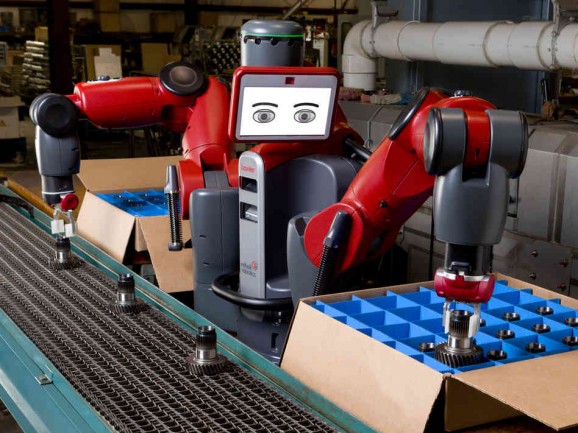TED Talk Describes Jobs Of The Future And The Future Of Jobs
Lately, you can’t scan the technology section of a paper or magazine without seeing articles about robots replacing humans in the workforce. In a recent TED talk, economist Andrew McAfee mentions driverless cars, Siri, Watson, and other examples of robots performing jobs previously held only by humans.
In the first minute, he forecasts that “we’re going to see more and more things that look like science fiction, and fewer and fewer things that look like jobs.” Well, that sounds bleak. I almost don’t want to keep listening, but anyone who makes a statement that bold in the beginning of a TED talk is going to pivot somehow, or offer a ray of hope. So let’s stick with it.
This isn’t the first time we’ve been warned that the technological age of unemployment is upon us — McAfee hearkens back to the Luddites who destroyed looms to protest the Industrial Revolution, which they were convinced would ruin us. But they were wrong. Since the Industrial Revolution, our economies have generally been okay, McAfee argues. So why would things be different this time?
Because the technology is different.
Our machines have skills that no other technology has ever had. They can see, hear, speak, understand, write, and attend to our needs, and that’s only the beginning. This is the “New Machine Age.”
But don’t worry, McAfee says. This is actually great economic news. Technological progress allows output to go up, prices to go down, and volume and quality to increase. Instead of regarding it as “shallow materialism,” McAfee suggests we regard it as “abundance,” which is what we want.
He also points out that once androids start doing all the crappy jobs, humans won’t have to do them anymore, which will provide the freedom to create a new type of society in which performers, thinkers, innovators, artists, etc. can exchange ideas and philosophies, where people who work crafts and trades can become “makers.” In short, he’s envisioning a society that “looks a lot like a TED conference.” While I love this sentiment, McAfee doesn’t really address how such a shift will enable people to pay the bills in the meantime. He seems to be suggesting that, along with a shift in occupation, we’ll also experience a shift of values in which these ideas (and not just technological ones) are worth money. Time will tell, but man do I hope he’s right.

He does acknowledge that it won’t be as easy as that, and there will be challenges. He’s not worried about the rise of killer robots or the Terminator scenario, but he is worried about the fact that corporate profits are up, while wages are down. The median income in the U.S. has gone down, while inequality continues to increase. He refers to what we all know to be true about the struggling middle class, and underscores how important it is for the middle class to be stable and prosperous.
He’s worried about middle class workers who, in addition to suffering economically, have also been proven to struggle in other areas of life. Studies show that blue-collar and middle-class workers tend to have more existential and marital/familial difficulties, and they tend to stop engaging in society as much. The class and employment disparity could, McAfee argues, threaten the “progress we made with the civil rights movement.”
Economically, this isn’t such a hard issue to solve. It’s “Econ 101,” he says, which suggests education that results in relevant, appropriate skills, entrepreneurship, and redoubled investment in infrastructure. Socially, though, it’s a lot more complicated. McAfee endorses radical solutions, such as a guaranteed minimum income and wealth distribution. He argues that they won’t make us lazy or complacent, and refers to Scandinavia, where such support systems are in place and countries boast higher social mobility than in the U.S.
McAfee’s biggest fear is that we’ll end up with “glittering technologies embedded in a shabby society, and supported by an economy that generates inequality instead of opportunity.” The solution, he argues, is to keep the middle class engaged — we have to continue to believe that the world is a fascinating place to explore. People who have been through the ringer, especially in terms of employment and economics, don’t feel that way anymore. Instead of being “bored into submission,” McAfee suggests leaning on technology to re-engage people in education and society, and raised awareness of the machine age and its implications.
He ends on a note of optimism, quoting Abraham Lincoln: “I’m a firm believer in the people.” Humans haven’t forgotten how to rise to a challenge, he assures us.
Until a robot starts writing for GFR, I’m going to believe him.












